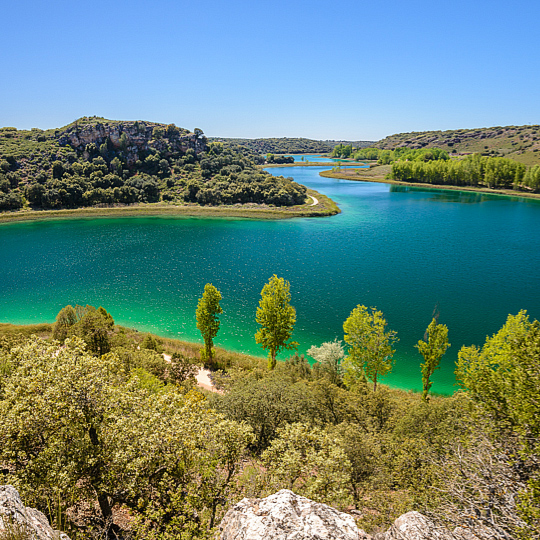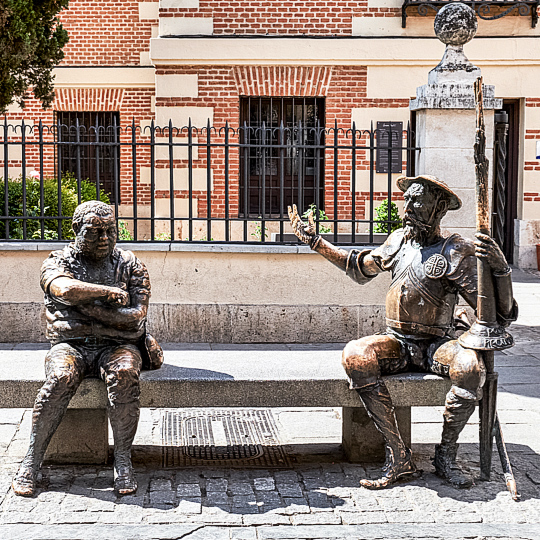Setting out from Toledo , head towards Consuegra. Along the way you’ll see those famous windmills, guilty of making Don Quixote believe that they were giants he had to fight. Nearby is El Toboso, where Dulcinea, the great love of his life, once lived. You can even visit the Casa-Museo de Dulcinea, a museum that is a recreation of a 16th century mansion, a caserón manchego typical of this region. From Villanueva de los Infantes you’ll continue on to Ossa de Montiel and the nearby Lagunas de Ruidera, and the Cave of Montesinos - the setting for some of the adventures of the famous hidalgo. From there you can go up into the hills that delimit the region where at one point in the book Don Quixote stops to mediate and rest.








